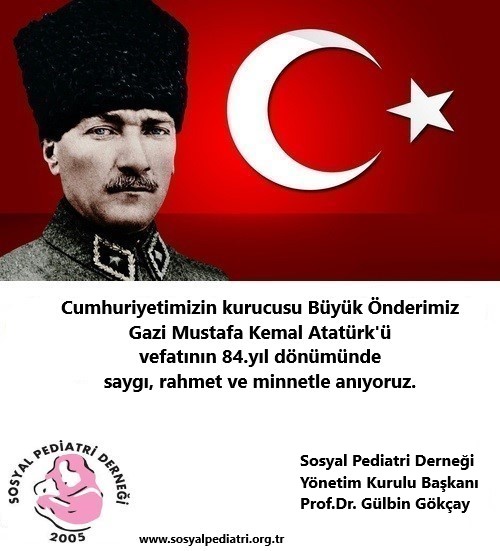Dünya Emzirme Haftası Nedeniyle Uluslararası Sosyal Pediatri ve Çocuk Sağlığı Derneği Bildirisi
Support for breastfeeding from ISSOP for World Breastfeeding Week August 2018
In support of World Breastfeeding Week, ISSOP re-affirms its support for Breastfeeding (breast milk feeding) (https://www.issop.org/2008/02/01/essop-position-statement-2/) as a key determinant of child health in all countries. We endorse the statement by the International Pediatric Association (IPA) (http://ipa-world.org/society-resources/code/images/ZW8hxbRkB7jO.pdf), while stressing the importance of the International Code of Marketing of Breastmilk Substitutes (ICMBS) (http://www.who.int/nutrition/publications/infantfeeding/9241541601/en/) and elimination of potential conflicts of interest for pediatricians and their societies related to financial support from the formula industry (https://www.issop.org/2014/04/24/issop-position-statement-4/)
Breastfeeding holds a central place in helping to ensure infants have a healthy start to life through the provision of perfectly designed nutrition, protection against many diseases, and the support of a secure attachment between mother and infant. New evidence continues to emerge of the benefits to both mother and infant of breastfeeding during the first years of life, and exclusive breastfeeding in the first six months. Pediatricians and pediatric societies should engage the media and other avenues to disseminate this message.
However, despite the life-saving and preserving properties of breastmilk, breastfeeding is under threat across the world and breastfeeding rates are falling in many countries – for example, UNICEF report rates in Thailand, Vietnam and China have decreased to 5%, 20% and 28% respectively. [1] Low breastfeeding rates are the result of lack of support for breastfeeding in the community, especially in work places, and aggressive marketing of infant formula.
It is clearly desirable for more women to enter the workforce. However, national policies such as paid maternity leave and workplace creches are indispensable for working mothers to successfully continue breastfeeding. Pediatricians and pediatric societies should advocate for expanded maternity leave and access to environments in the workplace conducive to pumping and/or nursing.
Physicians, especially pediatricians, have an important role in supporting breastfeeding, but training in breastfeeding counselling is often inadequate or non-existent in graduate and post-graduate training. Thus, we advocate for more formal training in breastfeeding for all health professionals caring for infants and their mothers.
The ICMBS was developed to regulate the baby food industry and to protect mothers from aggressive marketing of infant formula, yet violations of the Code are widely reported in many countries. Pediatricians themselves are responsible for conflicts of interest that are created by many national pediatric societies and associations accepting sponsorship from the baby food industry for education and research. Pediatricians should work with their professional societies to address conflicts of interest and pursue alternatives to formula company sponsorship.
In recognition and respect of World Breastfeeding Week, we call on pediatric societies and individual pediatricians to urgently strengthen support for breastfeeding by exposing violations of the ICMBS and ensuring its implementation in their practice—by avoiding conflicts of interest in their societies, and by advocating for training in breastfeeding counselling at all levels.
Further reading:
- UNICEF rings alarm bells as breastfeeding rates plummet in East Asia
May 2012
https://www.unicef.org/media/media_62337.html - Marketing of breastmilk substitutes: National Implementation of the International Code Status report 2016, WHO
http://apps.who.int/iris/bitstream/handle/10665/206008/9789241565325_eng.pdf;jsessionid=ABE0FAD66BEC0D7C4B0A8745D3540DD9?sequence=1
- Don’t Push it: why the formula milk industry must clean up its act. Save the Children, 2018
https://www.savethechildren.net/sites/default/files/Don%27t%20Push%20It.pdf
- ISSOP Position Statement 4: sponsoring of paediatric societies by the babyfood industry, 2014
https://www.issop.org/category/contents/issop-position-statements/page/3/


